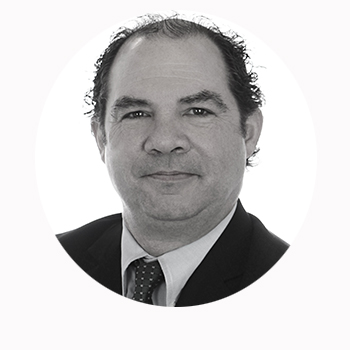Staying Focused Amid the Ukraine Crisis



Following the headlines regarding Russia’s invasion of Ukraine, our thought leaders have come together to outline potential macro impacts tied to these recent events. As we are in the early stages of this development, our comments are on what is more likely to occur nearer-term rather than conjecture about what may occur.
Equity Market
The major theme of the last six months has been a large rotation away from unprofitable stocks to lower-duration, high-dividend value and quality stocks.
Our Senior Investment Strategy Advisor, Jeremy Siegel, believes the dominant theme for the markets over the coming weeks is the Fed and inflation and not the Ukraine crisis.
Stocks with strong cash flows and profitability metrics, especially those with pricing power, are likely to perform well in light of these inflation dynamics.
Stocks with pricing power are well represented in quality dividend-growth-focused indexes and strategies, and these indexes have weathered market volatility over the last three months quite well. The valuations of quality dividend growth stocks make them attractive over the short run, while their profitability metrics make them valuable over the long run.
One battered-down technology segment that looks ripe for renewed consideration is cybersecurity stocks, which have secular tailwinds and very high revenue growth rates. Fears of accelerated cyber warfare caused a strong bid to these stocks, and we think the major sell-off over the last six months and year-to-date represents a timely thematic opportunity for those looking to add more growth stocks to their portfolios.
Bottom line: the macro environment reinforces the appeal of quality stocks selling at discounted valuations—with all eyes on inflation as a key variable for rates, factors and the markets.
Fixed Income Market
Obviously, geopolitical uncertainty such as the Ukraine news creates a knee-jerk risk-off/flight to quality trade.
UST yields are lower across the board, but the 10-yr yield retraced a good portion of its prior decline and ended up at 1.97%, only 2 basis points (bps) lower on the day.
At this point, I would expect to see upcoming Fedspeak acknowledge this “newfound” risk, but unless things deteriorate rapidly in the risk markets (stocks), the Fed will still go ahead and raise rates in March. Fed Funds Futures have dipped a bit in early reaction, but we still believe March to be the lift-off and roughly six hikes in 2022, little changed.
Needless to say, energy prices have soared on the headlines, another tailwind for inflation. However, the Fed, or any other central bank, has no control over that development. In fact, higher energy prices may be viewed as a “tax” on the consumer.
Once again, unless this crisis spirals and spills over into something even more horrific, like Russia moving beyond Ukraine and challenging a NATO country, the macro impact here in the U.S. will probably be more of an energy-related phenomenon. The Fed’s primary focus is domestic, and that would keep the Fed on a path to raise rates at the next 3 to 4 FOMC meetings.
The UST 10-Year yield will more than likely resemble a “sawtooth” pattern based upon what the stock market does.
Bottom line: Russia’s invasion of Ukraine has added a new aspect to the mix, but it has not changed our focus on rising rates.
Financial advisors: Register now for a live webcast on February 28, 2022 at 4:15pm with Professor Jeremy Siegel, Senior Investment Strategy Advisor to WisdomTree, Jeremy Schwartz, Global Chief Investment Officer, and Kevin Flanagan, Head of Fixed Income Strategy, for a timely discussion on:
- The macroeconomic impact of this ongoing crisis
- Potential outcomes and implications for Fed policy, if any
- Strategies for maintaining long-term goals while navigating short-term uncertainty
Register Here.

Jeremy Schwartz has served as our Global Chief Investment Officer since November 2021 and leads WisdomTree’s investment strategy team in the construction of WisdomTree’s equity Indexes, quantitative active strategies and multi-asset Model Portfolios. Jeremy joined WisdomTree in May 2005 as a Senior Analyst, adding Deputy Director of Research to his responsibilities in February 2007. He served as Director of Research from October 2008 to October 2018 and as Global Head of Research from November 2018 to November 2021. Before joining WisdomTree, he was a head research assistant for Professor Jeremy Siegel and, in 2022, became his co-author on the sixth edition of the book Stocks for the Long Run. Jeremy is also co-author of the Financial Analysts Journal paper “What Happened to the Original Stocks in the S&P 500?” He received his B.S. in economics from The Wharton School of the University of Pennsylvania and hosts the Wharton Business Radio program Behind the Markets on SiriusXM 132. Jeremy is a member of the CFA Society of Philadelphia.


